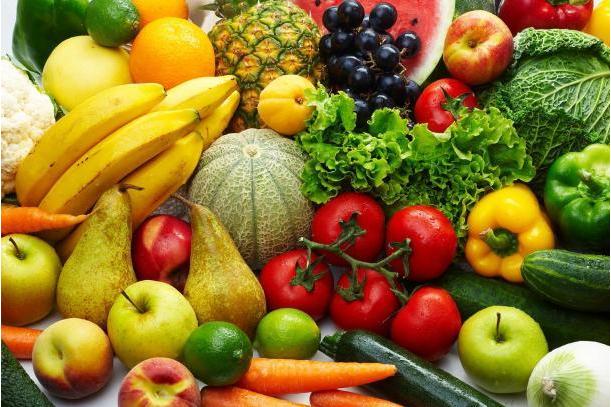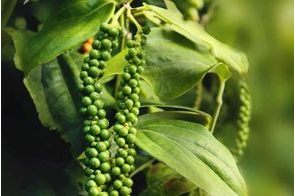2021 is International Year of Fruits and Vegetables. But safety of the foods for consumption is very important

Summary
The four-point objective of the United Nations in its declaration of 2021 as the IYFV failed to put necessary emphasis on ensuring that the food items are safe for consumption.
The United Nations 74th General Assembly declared 2021 as the International Year of Fruits and Vegetables (IFYV). The declaration was intended to increase awareness on the nutritional benefits of fruits and vegetables and to promote their consumption.
Vegetables and fruits are very important in diets for their rich supply of vitamins including vitamins A, B and C; minerals; and dietary fibre. They also contain phytochemicals that function as antioxidants and perform other protective roles against diseases in the body. Therefore, the World Health Organization (WHO) recommends daily intake of at least 400 grammes of fruits and vegetables for adults, to reduce the risk of non-communicable diseases including cardiovascular diseases and some types of cancer. In 2017, about 3.9 million deaths globally were linked to insufficient intake of fruits and vegetables.
Vegetables and fruits also provide economic benefits for rural and urban dwellers. Vegetables are easy to grow and also less capital intensive. Their shorter production periods – compared to other food crops – provide shorter cycles of income to the farmers. The vegetables that are majorly grown in Nigeria include spinach, okra, fluted pumpkin (ugu), onion, tomato, pepper, amaranthus, carrot, melon, jute (ewedu), hibiscus sabdariffa (zobo), baobab leaves, cabbage, lettuce and cucumber, while the fruits include mango, banana, citrus, pawpaw, guava, star apple and many others.
Despite the economic and nutritional benefits of fruits and vegetables, there are many challenges that limit their cultivation and yield. One of the major issues is the perishable nature of these foods. The inability of the farmers to sell out their produce soon enough after harvesting them can lead to spoilage, resulting in loss of income.
To limit loss and waste, fruits and vegetables need to be processed, properly packaged, and stored to improve their shelf-life while preventing reduction in their nutritional status. Globally, the industrial potential of fruits and vegetables is on the increase. Food products that are produced from these food crops include canned fruits and vegetables, jams, purees, sauces, soups, frozen fruits, and dehydrated fruits and veggies. Increasing the cultivation of the primary products in low-income countries of sub-Saharan Africa including Nigeria will greatly increase the availability of diverse food products in the region.
The fruits and vegetables processing industries in Nigeria are concentrated in the production of tomato, bell pepper and other spices into pastes in cans and bottles, as well as packaged juice. These industrial activities create additional employments – including well-paying professional jobs – and wealth. This is very important, given the high rate of unemployment in the country, which was 33.3 per cent as of December 2020.
Agricultural production in developing countries, which is mainly through subsistence farming, is hardly associated with wealth creation. The seasonality of the produce creates supply glut during the harvest seasons, depressing income of farmers. Significant parts of the harvests also get spoiled. With more capacity for food processing in Nigeria, including for fruits and vegetables, the companies can buy large quantities of the produce, ensuring decent livelihood for farmers. It also means more people will be able to consume fruits and vegetables, whether they are in season or not.
Maintaining the nutritional value and quality of fruits and vegetables is a major challenge in less developed countries. How the products are grown, handled or treated after harvest is very important. Handling practices during processing, packaging, storage, and transportation are essential in maintaining quality and shelf-life of fruits and vegetables. Indeed, careful handling practices from farm to table are crucial, especially as many fruits and vegetables are often eaten raw or steamed. Eliminating contamination may be difficult if adequate care is not taken throughout the aforementioned stages of production of the food items.
The four-point objective of the UN in its declaration of 2021 as the IYFV -- raising awareness of and directing policy attention to the nutrition and health benefits of fruits and vegetables consumption; promoting diversified, balanced and healthy diets and lifestyles through fruit and vegetable consumption; reducing losses and waste in fruits and vegetables food systems; and sharing best practice -- failed to put necessary emphasis on ensuring that the food items are safe for consumption.
Safe handling of fresh fruits and vegetables to limit contamination and food poisoning must be ensured while promoting the consumption of the foods. Harmful bacteria, viruses or toxins consumed with fruits and vegetables are among the most common causes food-borne illnesses, such as diarrhea, nausea and abdominal pains. People with preexisting chronic conditions or compromised immunity, children, pregnant women and the elderly could be exposed to severe health conditions through food poisoning.
Toxic pesticides used to get rid of pests while growing fruits and vegetables or for post-harvest preservation can render the produce poisonous when consumed. Sometimes washing with water alone may not rid fruits and veggies of some of the toxic pesticides that may have been used on them. To reduce contamination, growers must take some precautions in the field before, during and after growing these crops. Animals should be prevented from roaming in areas where vegetables are grown. The faeces or droppings from roaming animals can cause contamination. When using dung as manure, farmers should ensure that the faecal matters are properly treated by prolonged storage for at least three months before applying them to the soil.
Some harmful microorganisms can survive for long periods of time and can cause serious health issues when farm produce they have contaminated are consumed. It is very important for farmers of fruits and vegetables as well as other farm workers to maintain good personal hygiene and avoid defecating or urinating in areas where fruits and vegetables are grown. Growing areas should not become dumping sites for trash to avoid breeding harmful microbes.
Farmers should also be aware that using contaminated water for irrigation can contaminate farm produce. Therefore, efforts should be made to reduce the risk of contamination from water sources. Also, farm tools and machineries should be properly maintained. Harvest and storage equipments must be kept clean and dry to avoid creating favourable environment for microbes to thrive.
Some precautions can also be taken during harvest. These include harvesting fruits and vegetables only when they are dry, minimizing soil contamination, avoiding picking produce together with animal droppings, and removing harvested produce from the field immediately after harvest for proper storage.
Unfortunately, most of the people involved in farming in developing countries, especially in rural areas where most farming activities take place, are not formally educated and unmindful of adequate hygiene measures. Extension workers, governmental and non-governmental organizations can join forces to train farmers in such communities on hygienic farm practices for fruits and vegetables. Such trainings can help growers consider food safety as a highly essential aspect of their vocation.
Farmers and fruit traders should avoid the use of harmful substances for preserving fruits and vegetables. Some of such harmful chemicals are used to prevent insect attack, and others used to induce ripening. Indiscriminate use of artificial ripening agents such as calcium carbide, ethylene, ethephon and others should be strongly prohibited. Calcium carbide, for example, is a known carcinogen (i.e., cancer-causing chemical). It contains traces of arsenic and phosphorus hydride that can have serious health implications. Symptoms of poisoning from these chemicals include shortness of breath, respiratory and intestinal irritation, and build-up of fluids in the lungs. Prolonged exposure can lead to peptic ulcer and other chronic diseases.
The use of substances such as ‘sniper’ as an insecticidal agent is prohibited in Nigeria. More enlightenment of the general public on the dangers of these practices should be supported by the Ministry of Health and other concerned agencies to promote the well-being of the public.
Consumers of raw fruits and vegetables should ensure that the food items are properly washed with clean, running water. For pineapples, oranges, watermelon, cabbage etc., they should be washed before and after peeling. Scrub brushes may be needed for washing a vegetable like potatoes. It is also important to discard outer damaged or wilted layers of cabbage and lettuce before washing the rest of the vegetables with water. Fruits and vegetables should be stored (in refrigerator) only after cleaning.
Fruits and vegetables are essential dietary components whose daily consumption can reduce the risk of illnesses and life-threatening diseases. However, producers and consumers should maintain proper hygiene in handling them.
Mojisola Karigidi, a Financial Nigeria Columnist, is a Nigerian biochemist and the founder and product developer at Moepelorse Bio Resources. She is also a Global Innovation Through Science and Technology (GIST) awardee, and an Aspen New Voices fellow.
Related
-
Stakeholders discuss financing and food security for post-COVID-19 Africa
AZA, MasterCard and Afreximbank and beneficiaries including Nigeria’s Alluvial Agriculture showcase collaborations.
-
FAO says 5.3 million people need food assistance in northern Nigeria
The FAO says ongoing civil insecurity impedes market functionality and food access to vulnerable households.
-
For a sustainable sourcing and use of wild plants
A better understanding of the beneficial roles of wild foods can help governments in Africa create better forest policy to ...








